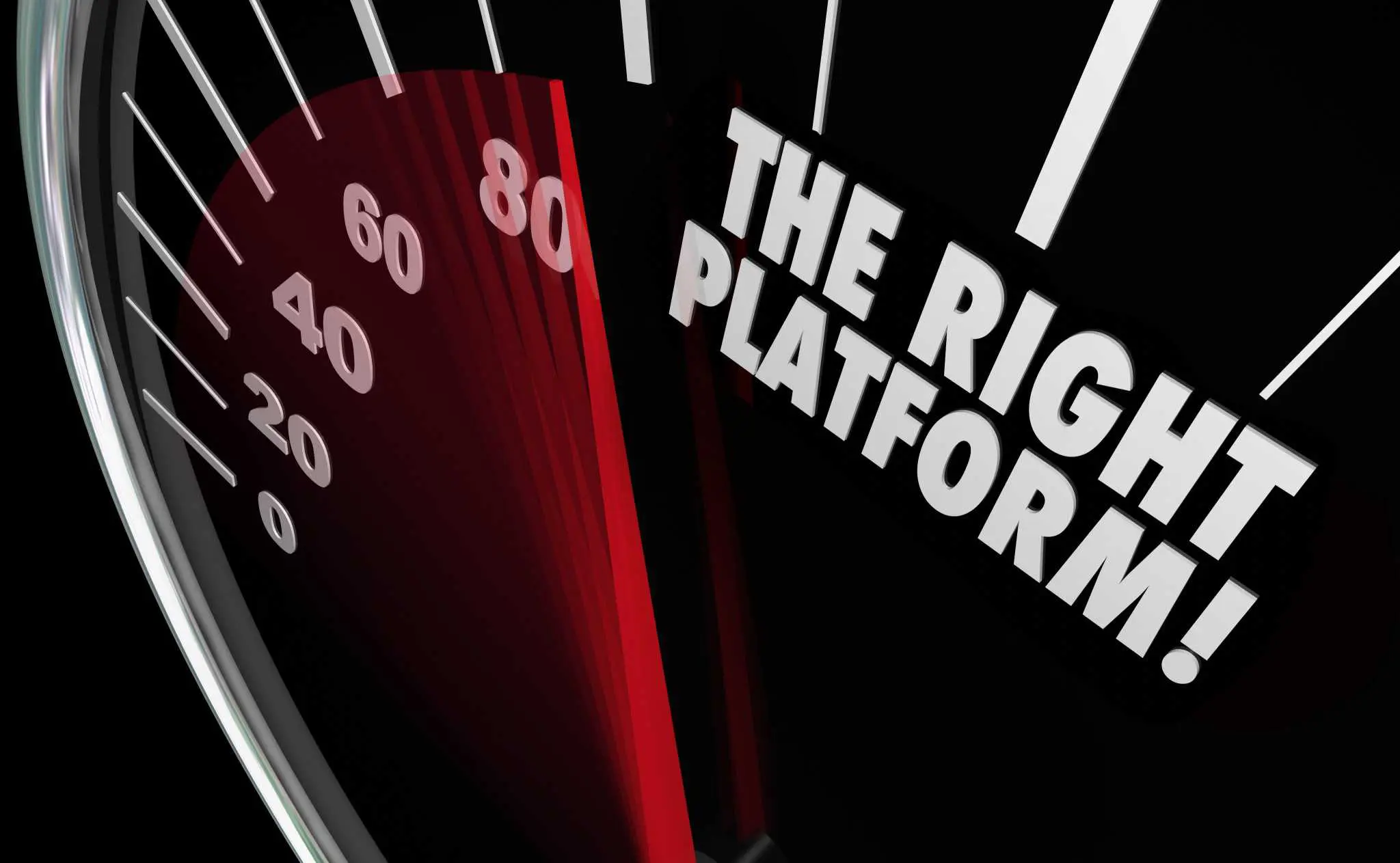
Drupal, WordPress, or Joomla – Which Platform is Best?
If you’re planning to create a website, odds are you’ll choose a CMS (content management system). That said, if you’re unfamiliar with such platforms, it can be hard to choose the one most suitable for your site. To provide you with an informed selection, this article will compare a few of the most popular CMS platforms out there: Drupal, WordPress, and Joomla.
An Overview of Drupal, WordPress, and Joomla
A brief introduction to all three of these platforms.
Drupal Overview
Drupal is used by only 2% of websites in the world. The CMS is free to use and is a very secure and powerful platform. Drupal is perfect for people who store confidential user data.
Drupal is very versatile, just like WordPress, and though it doesn’t come with nearly as many add-ons, it can be used to make sites that warrant specific functions.
Drupal can be very complex to setup and operate (much worse than WordPress), though, so maybe it’s not the best option for novices.
WordPress Overview
The most popular platform of the three is WordPress, which is currently used to run 27%+ of all websites online today. It doesn’t cost money to use and is simple to set up. Initially developed to run blogs, it has gone through extensive upgrades throughout the years and can be used to make all types of websites, such as online media platforms, e-Commerce shops, and private membership websites.
One of its largest benefits is that more than 49,000 free plug-ins accompany it, giving WordPress unmatched functionality. Additionally, it comes with plenty of free themes, allowing users to make special websites tailored to their brand.
Joomla Overview
Joomla is a very powerful and free CMS used to create websites that are media-heavy. It is fantastic for managing digital content like videos, pictures, social network applications, and widgets. Similar to Drupal, it’s more complicated to use than WordPress, so if you are creating the site alone and lack experience with CMS, you might face a daunting learning curve. That said, Joomla is a popular option for web developers – approximately 3% of the websites across the world use Joomla.
The platform is best for large-scale websites, including membership sites and online courses.
Which platform is more secure?
Security is a key component that every owner of a website needs to take into consideration. When assessing how secure these platforms are, you must review a few individual areas: third-party extensions (modules, plugins, extensions, etc.), the core code, and the simplicity of software updates.
Drupal Security
Of the three options, the most securely coded platform is Drupal. There are very strict protocols enforced by the software’s security team for both the add-on modules and the core code. Security updates are offered swiftly when vulnerabilities are discovered.
If you choose to alter or add to the Drupal coding for sites you’re putting together, you might inadvertently build your own loopholes. The team at Drupal endeavors to keep security problems to a minimum. You should alter such coding with caution if you’re not an expert programmer.
WordPress Security
WordPress is outstanding at maintaining its core code, and updates are generally automatic. While there are vulnerabilities that pop up once in a while, they are hastily taken care of – We saw a patch released within 20 minutes. WordPress’ free plugins are quite secure and can be updated automatically via the Jetpack plugin.
While the majority of premium plugins are secure, they can’t always be updated automatically, and there’s no security guarantee if they can’t be updated from your WordPress dashboard.
WordPress is a target for hackers because of how popular the CMS is. They will use bots to browse the Internet for WordPress websites showing vulnerabilities (i.e. sites that haven’t had their plugins updated to the most recent versions) and try to infect them (or hijack the site). If you use WordPress, remember to regularly keep your site updated so you can stop such attacks from happening – Most hacks happen because the web master was complacent with updates.
There are various plugins for WordPress that can be used to stop hackers from penetrating your website. We suggest you use them, in conjunction with any security protocols provided by your website. We can of course set this up for you.
Joomla Security
Similar to WordPress, Joomla has mastered the art of keeping its core code secure and speedily reacts to bugs and loopholes. That said, much like how a Joomla extension can be created by anyone, there is always the possibility that third-party software might open the door for vulnerabilities. It is highly advised that you only choose plugins shown on the Joomla Extension Directory.
RESULT: For Security, Drupal is best.
As far as SEO goes, which one is the best platform?
Search Engine Optimisation (SEO) is an important consideration when selecting your CMS. The design of a site can affect how it ranks on search engine result pages. Ranking factors like mobile-friendliness, site speed, and navigation simplicity can all be impacted by a website’s coding.
Drupal SEO
Although the primary foundation of Drupal isn’t as SEO-friendly as WordPress is, it’s not hard to make it more search engine-friendly. It does come with numerous SEO modules that can simplify the process of indexing your site for search engines, and therefore, make it easier for you to have content optimized. In fact, Yoast, the top WordPress SEO plugin, has released a Drupal version.
WordPress SEO
Matt Cutts of Google claims that, by default, WordPress rectifies a multitude of SEO problems. In the following brief video, he discusses how it handles between 80 to 90% of SEO mechanics. Sure, some SEO work still needs to be done, like keyword optimization, but if you’re in need of a platform that is search engine-friendly, your best bet is WordPress.
There is a variety of efficient WordPress SEO plugins you can use to rank your website higher than it currently does. Check out what Mr. Cutts has to say here:
Joomla SEO
As far as SEO goes, Joomla is almost identical to Drupal. Although it comes with several features that are SEO-friendly, it’s not programmed like WordPress is. That said, there are several SEO extensions you can use to optimize your website’s content.
RESULT: For SEO, WordPress is the winner.
Which platform has the best performance?
Your website’s performance can have a substantial effect on how successful it is. It must load fast, as customers have limited patience. If your website runs numerous processes, they need to be coded to operate quickly and efficiently.
Be mindful that performance isn’t completely based on the way a website is developed. Your host’s server speed, as well as the programming resources you have on hand, can all have an effect. A properly developed website can substantially quicken performance.
Performance of Drupal
If WordPress provides the best ready-to-use SEO answer, Drupal does the same thing, performance-wise. It’s very agile and amazingly well coded, allowing it to operate programs properly and quickly. That said, if you add a lot of content or there is a heavy amount of traffic on your site, it may start lagging. To rectify this, you must improve performance by using caching and disabling unnecessary modules.
Performance of WordPress
If there is a downside for the abundance of plugins provided by WordPress, it’s the fact that they can make the website lag. Every installed plugin will warrant its share of processing time. The speed of your site will reflect how many plugins are being run at once. Users of WordPress would be wise to limit the amount of plugins they install.
Fortunately, there is a workaround. It’s feasible to use caching, compression, and content delivery networks to expedite data transfer. You can also compress pictures to reduce their size without taking away quality. Plugins like W3 Total Cache and JS Minify are great tools to achieve this. Several hosts also offer cPanel tools that that can improve performance.
Performance of Joomla
Luckily for users of Joomla, performance enhancements remain a primary focus for developers and every new update is a progressive step. Additionally, there is a sufficient variety of improvement extensions on hand.
Caching, optimization of pictures, and compression are all beneficial methods to decreasing the server load and to expedite the operation and delivery of your website. Ensure that your software is always running the most updated version.
RESULT: As far as performance goes, Drupal is the clear winner.
IN CLOSING: Overall, WordPress stands tall
With regards to performance and security, Drupal wins hands-down when you assess the three platforms as-is. For simplicity and SEO, however, WordPress has a leg-up over the competition.
Ultimately, WordPress remains at the top mostly because the amount of plugins to choose from makes it function better, and it’s more versatile than the other two options. With the proper plugins installed, WordPress can perform as well and be as secure as Drupal.
If you’re in search of high performance, secure web hosting, have a look our Website Development services, all of which include a CMS of your choosing. On the other hand, if you believe the platforms discussed in this article might be too troublesome to handle, get in touch with us for information about our simple ‘drag and drop’ alternative.

